Don Meichenbaum, Ph.D. Presents: 2 Day Intensive Workshop: Treating Trauma Through the Integration of CBT and Constructive Narrative Therapy – Donald Meichenbaum
Learn from one of the world’s leading psychotherapists and cofounder of CBT, Dr. Don Meichenbaum, as he teaches how to integrate Constructive Narrative Therapy with Cognitive Behavioral Therapy to achieve better clinical outcomes with your clients who have experienced trauma.
This two-day, intensive recording will demonstrate how to integrate the two approaches to effectively treat challenging clients with a variety of co-occurring disorders, including PTSD, Complex PTSD, Borderline Personality Disorder, substance abuse disorders (including opioid abuse) and more! In addition, Dr. Meichenbaum will highlight specific strategies that “expert” psychotherapists do to achieve lasting changes in their clients.
Watch Dr. Meichenbaum as he shares his vast clinical and research experience in a humorous, engaging manner. Using video case presentations, he will walk you through how to implement various treatment interventions that you can use in your very next session with clients. What’s more, you’ll be provided with detailed, practical handouts to accompany your new skills.
- Articulate the Constructive Narrative Perspective (CNP) of psychotherapy as it relates to case conceptualization and treatment planning.
- Integrate the core tasks of psychotherapy into your clinical practice, including development of the therapeutic alliance and collaborative goal setting.
- Integrate Cognitive Behavior Therapy and Constructive Therapy approaches for treating clients with a variety of co-occurring disorders such as PTSD, Substance abuse, prolonged and complicated grief, Borderline Personality Disorder, anger control problems and traumatic brain injuries.
- Consider the clinical implications of the research related to trauma and resiliency with clients.
- Utilize clinical strategies to integrate the client’s spirituality into psychotherapy to help improve clinical outcomes.
- Implement strategies to increase client resilience in six domains (physical, interpersonal, emotional, cognitive, behavioral and spiritual) to decrease symptomology and improve level of functioning.
- Utilize “deliberate practice activities” to further clinical expertise and competency in a therapeutic setting.
- Evaluate the nature and neurobiology of trauma and resilience as it relates to treatment considerations.
- Employ a Case Conceptualization Model of risk and protective factors that informs assessment and treatment planning.
- Conduct evidence-based cognitive-behavioral techniques including exposure-based interventions, self-monitoring, therapeutic homework assignments and cognitive restructuring to assist clients in reducing problematic symptoms.
- Teach clients intra- and interpersonal coping skills in order to reduce symptoms of PTSD and related mental health disorders.
- Ascertain the clinical considerations for treating specific client populations such as adolescents diagnosed with PTSD, prolonged/complicated grief, Borderline Personality Disorder and traumatic brain injury.
Constructive Narrative Perspective (CNP) of Psychotherapy
- By way of introduction: Changing conceptions of cognition
- We are the stories we tell
- Psychotherapy as “narrative repair”
- Help clients build new “possible selves”
- Build resilience and adaptive coping skills
- Techniques that integrate CNP with CBT:
- Emotional processing, restorative retelling, adaptive disclosure, imagery re-scripting, cognitive restructuring, Gestalt empty chair procedures, stress inoculation training, journaling, spirituality
The Nature and Impact of Trauma Exposure: The “Untold Story” of Resilience
- Controversies in the field of PTSD and Complex PTSD: “State of the Art”
- What distinguishes the 75% of individuals who evidence resilience VERSUS the 25% who develop persistent PTSD and related co-occurring disorders and adjustment difficulties
- The nature and neurobiology of trauma and resilience: Implications for assessment and treatment
- What resilient individuals DO and do NOT do
The Core Tasks of Psychotherapy: What “Expert” Therapists Do
- The “state of the art” of psychotherapy
- Case Conceptualization Model to inform treatment decision making
- How to develop, maintain and monitor the quality of the therapeutic alliance
- Use of treatment-informed feedback
- Engaging clients in treatment – Use of Motivational Interviewing procedures
- Handling “ruptures” in the therapeutic alliance
- Assessment: Comorbidity, risk to self/others, client strengths and resilience
- Cultural, gender and developmental considerations
- Psychoeducation: Use the art of questioning, CLOCK metaphor, time lines, identify strengths
- Promote self-monitoring and “homework” assignments
- Teach intra- and interpersonal coping skills
- How to achieve “lasting changes”: Generalization guidelines
- Address the needs of health care providers: Ways to bolster “vicarious resilience” in psychotherapists
- Bolster the client’s resilience in six domains: physical, interpersonal, emotional, cognitive, behavioral and spiritual
- Integrate spirituality and psychotherapy
Applications for Clinical Populations with Co-Occurring Psychiatric Disorders
- Treatment for individuals who experience:
- Complicated and prolonged grief and traumatic bereavement
- Borderline Personality Disorder
- Anger control problems and aggressive behavior
- Traumatic brain injuries
- Bolster resilience across the lifespan: High risk children and families, LGBTQ adolescents, adults and older adults
Treatment of Clients with Substance Abuse and Co-Occurring Disorders
- Integrated treatment for alcohol and opioid abuse
- Motivational Interviewing procedures
- CBT and Constructive Narrative coping skills training exercises:
- Mindfulness training
- Relapse prevention
- Network interventions
- Take home checklists: Patient treatment, 12 Step AA, SMART Recovery, Recovery Strategies
- Consumer guidelines to critically evaluate residential treatment centers
- Take home Deliberate Practice TOOLKIT
Instant Access Available
Downloadable Content

Get Instant Access Don Meichenbaum, Ph.D. Presents: 2 Day Intensive Workshop: Treating Trauma Through the Integration of CBT and Constructive Narrative Therapy – Donald Meichenbaum at Offimc.click Now!
Delivery Information
- Upon ordering the product, a delivery email with download instructions will be sent immediately to you so that you may download your files. If you log in (or create an account) prior to purchase you will also be able to access your downloads from your account dashboard.
- It is a digital download, so please download the order items and save them to your hard drive. In case the link is broken for any reason, please contact us and we will resend the new download link to you.
- If you don't receive the download link, please don’t worry about that. We will update and notify you as soon as possible from 8:00 AM – 8:00 PM (UTC+8).
- Please Contact Us if there are any further questions or concerns you may have. We are always happy to assist!



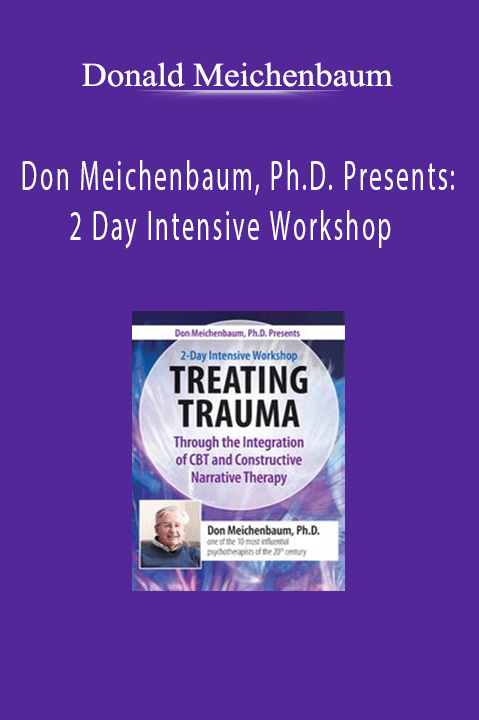



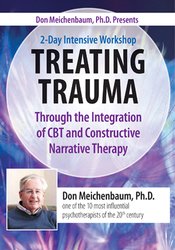
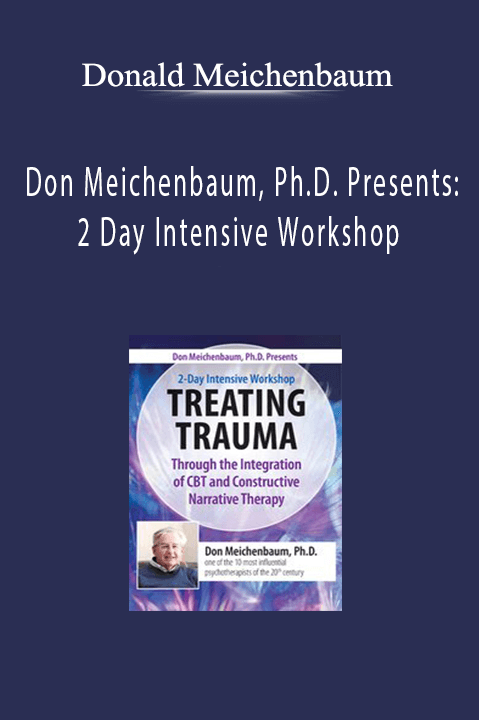
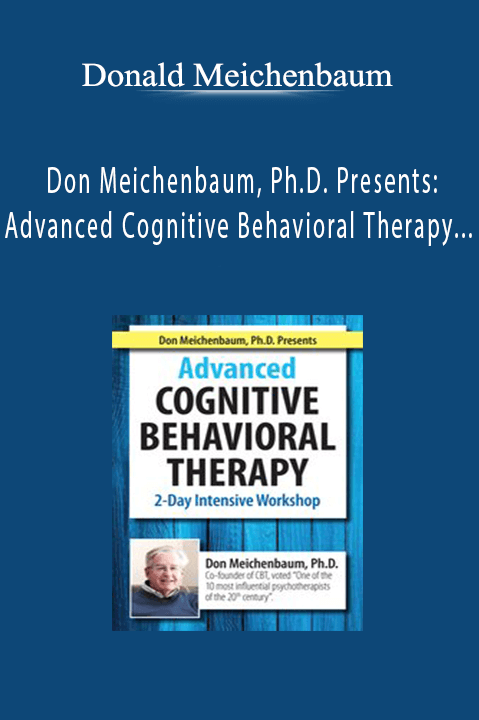
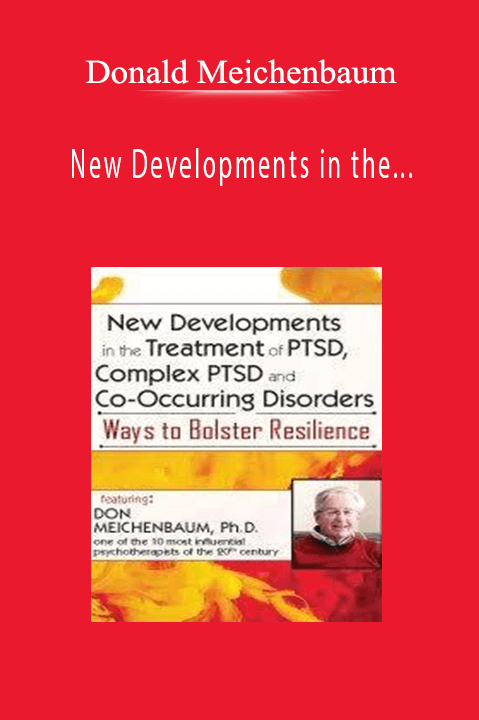
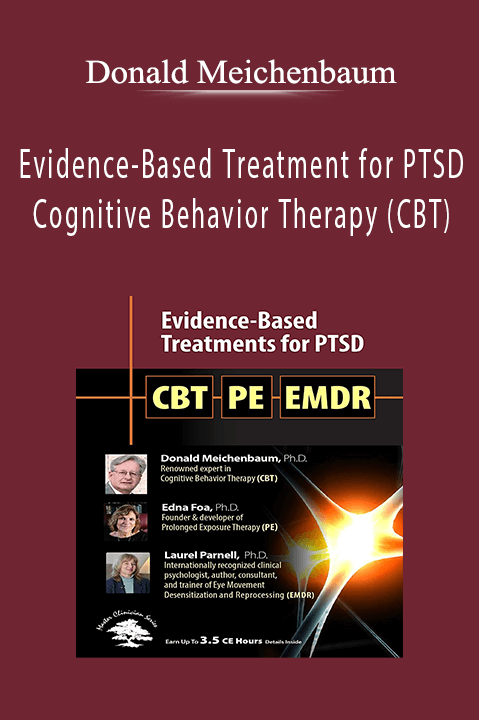


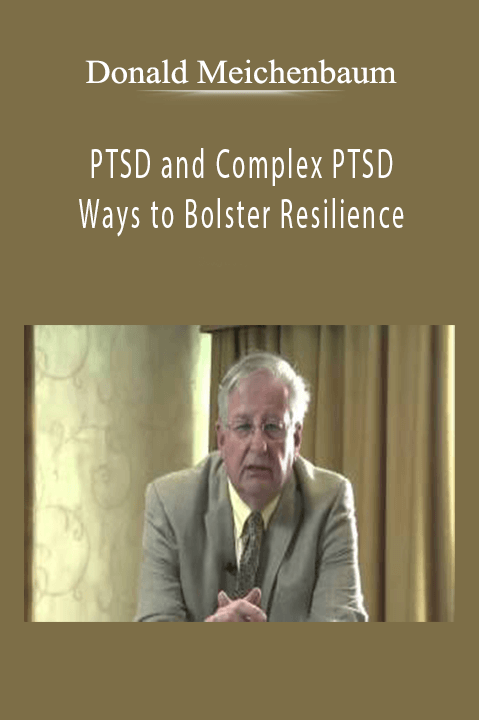
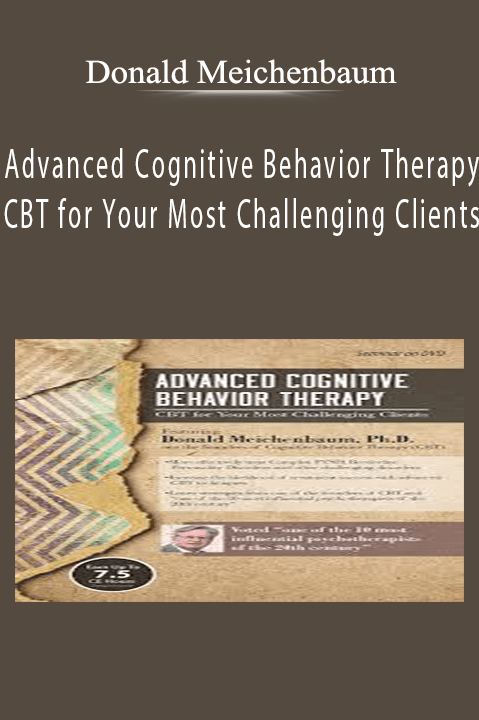
10 reviews for Donald Meichenbaum – Don Meichenbaum, Ph.D. Presents: 2 Day Intensive Workshop: Treating Trauma Through the Integration of CBT and Constructive Narrative Therapy
There are no reviews yet.